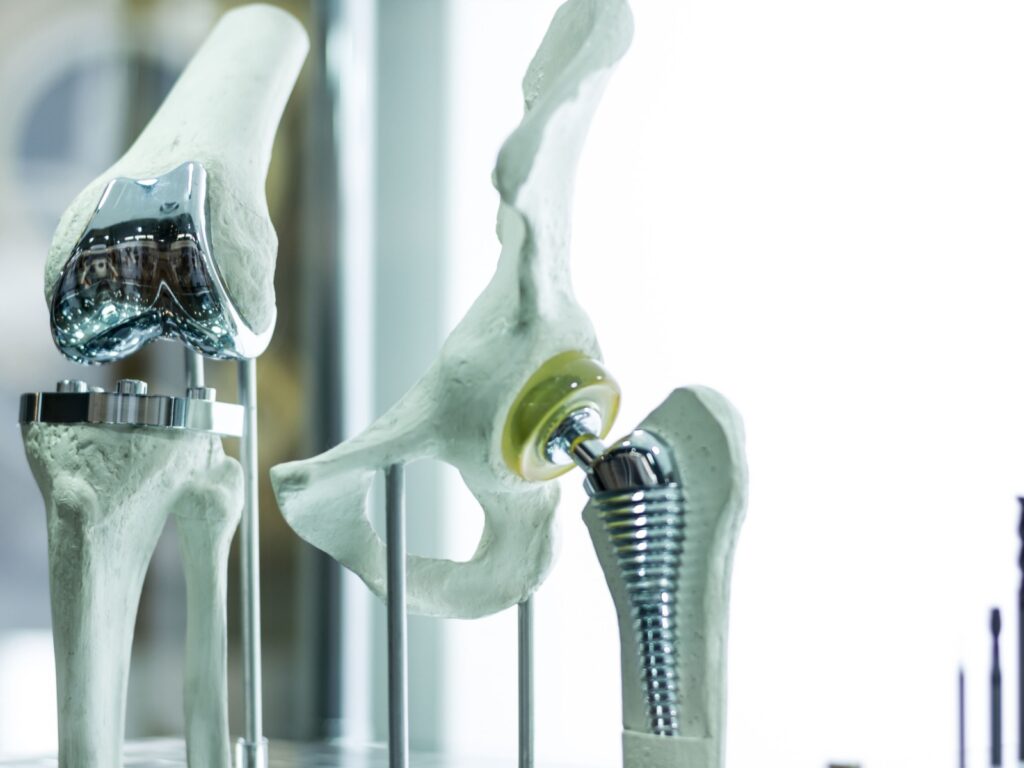The Applied Technical Services Family of Companies (FoC) evaluates knee joint replacements in compliance with the ASTM F3140. Knee joint replacements are common surgical procedures designed to improve the lives of patients by improving their mobility and reducing knee-related pain. Knee joint replacements are highly regulated, and our medical device testing lab helps manufacturers ensure their prosthesis designs are safe, effective, and compliant with necessary standards.
What is ASTM F3140?
The American Society for Testing and Materials developed the ASTM F3140 testing standard as a standardized test method for experts evaluating how a metal tibial tray’s components respond to cyclic forces. The standard’s objective is to determine the test specimen’s cyclic fatigue performance, and it accomplishes this by subjecting the specimen to conditions that mimic the repetitive loading conditions of natural knee joints. The data obtained during the testing procedures reveals information about the prosthesis’s fatigue performance, enabling manufacturers to assess the long-term durability of their product.
About Our ASTM-compliant Medical Device Testing Services
Our medical device testing laboratory assists manufacturers in navigating the complex world of medical device compliance and testing. We recognize that millions of people depend on medical devices to sustain their quality of life, so our specialists work diligently to ensure that our clients’ products offer the functionality, durability, and safety needed to have a lasting positive impact on end users. In addition to our ASTM F3140-compliant cyclic testing services, we offer services that help clients comply with other knee replacement-related standards, such as:
- ASTM F1223
- ASTM F1800
- ASTM F2009
- ASTM F2345
- ASTM F2777
- ISO 7206-4
- ISO 7206-6
- ISO 7206-10
The Importance of Cyclic Fatigue Testing
Knee joint replacements endure a significant amount of mechanical stress during their lifetime. The data collected throughout the cyclic fatigue testing process helps manufacturers understand the strengths and weaknesses of their material selection choices and product designs. This allows manufacturers to adjust their medical devices before their use in medical applications. Failure to test a medical device in alignment with the ASTM F3140 standard could result in the following issues:
- Premature wear and tear
- Implant failure
- Design errors that require expensive fixes
- Potential patient harm
- Lawsuits and legal penalties
Contact Us
Call +1 (888) 287-5227 to speak with an ATS representative who can give you more information about our medical device testing lab’s ability to help your company comply with the latest standards.



